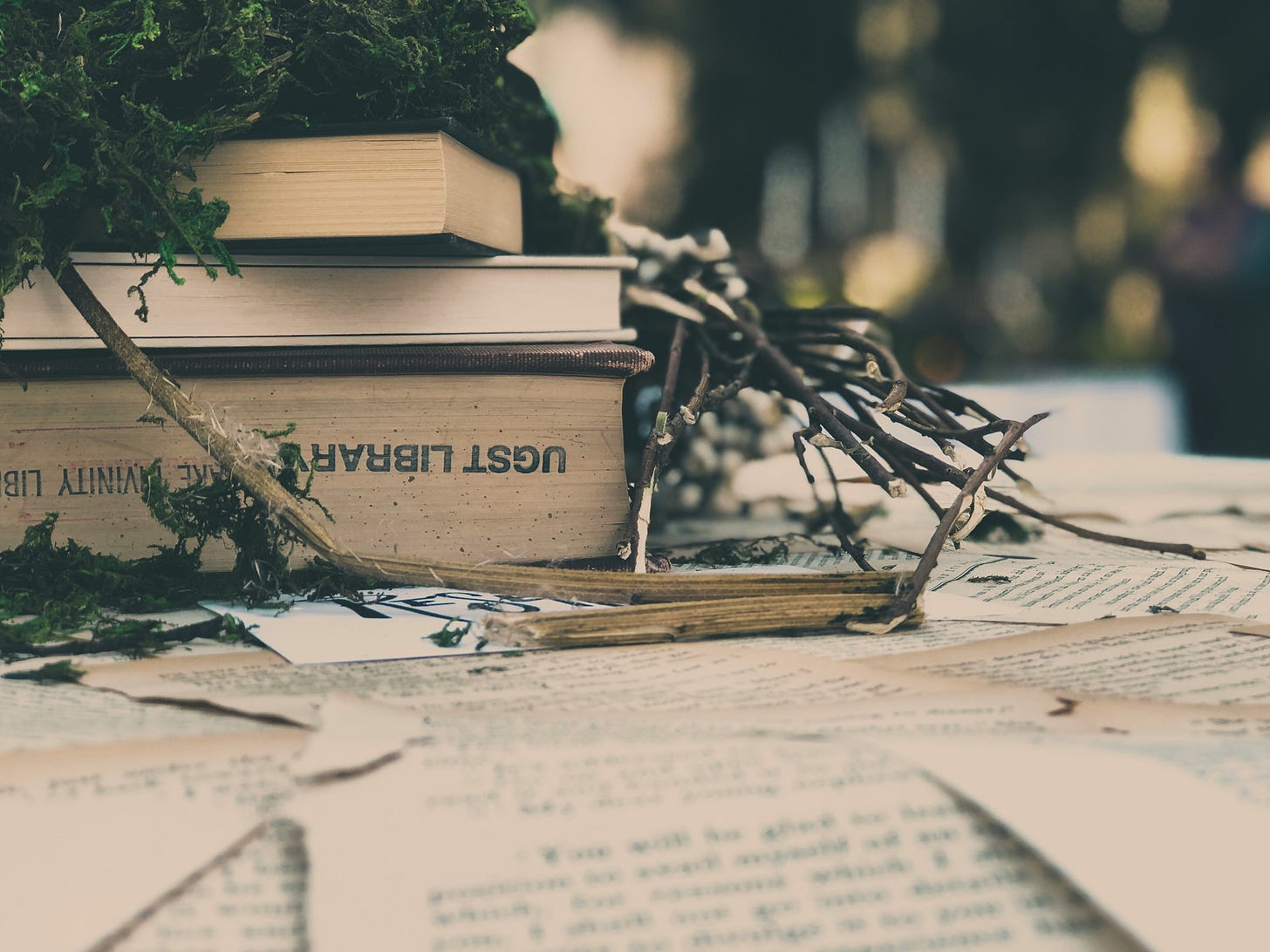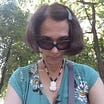
I receive periodic emails from the Authors’ Guild, of which I am a member, to “fight book bans.” One such email from June 21st 2024 informed me that at the Authors’ Guild Gala on May 30 2024, librarian Suzette Baker, who had been “fired for refusing to comply with restricting access to certain books,” in particular books “related to race and LGBTQA+ experiences,” was presented with an award. Baker received the award from George Johnson, author of All Boys Aren’t Blue, a book described by the Authors’ Guild as “the second most banned book in this country.” It is not clear whether this was one of the books defended by Baker. From public information available about Baker’s lawsuit, we find out that activists demanded the removal of books from children and teen’s bookshelves1, deeming them “inappropriate” because they included “sexual activity.” While we may have different views on what type of “sexual activity” should be available for children’s reading lists, it is significant that the Authors’ Guild left out the detail about age appropriateness.
A first observation: I noticed that when the Authors’ Guild, in this case, or PEN (of which I am no longer a member), in other instances, ask authors to join them in their “fight against book bans,” the “book ban” is framed in a way that leaves out the question of age-appropriateness. In fact, the majority of “book bans” refers to children’s books, a category that incorporates by default the notion of age-appropriateness. For instance, a quick search on All Boys Aren’t Blue reveals that it includes graphic scenes of sexual violence, and so, to call this book inappropriate for certain ages would make perfect sense; after all, our societies forbid the exposure of children to films with sexual nudity, never mind sexual violence. Then, why is this acceptable, and even promoted, for books? To equate age inappropriateness with a “book ban” strikes me as disingenuous, to say the least. It is one thing to use the concept of a “ban” in relation to adults, and a whole other thing to use it for children. The whole concept of ratings in the movie and the publishing industry is thus being questioned. You either believe in ratings according to the viewer’s/reader’s age, or else, drop ratings altogether.
The concept of “the freedom to read,” which is invoked by the Authors Guild, only referred to adults, not to children, when it was first adopted in 1953 by the American Library Association and the Association of American Publishers. According to their joint statement, it is the duty of publishers and librarians to make available “a diversity of views, including those that are unorthodox, unpopular” and even “considered dangerous,” and that publishers need not endorse the ideas they publish. I am sure I am not the only one to notice the irony here, namely that the Authors’ Guild uses the concept of “the freedom to read” in a very selective way. In the past decade, countless authors have been deplatformed for holding “unpopular” views, yet I don’t remember them being defended neither by PEN, nor by the Authors Guild. For some reason, the “freedom to read” seems to apply only to certain types of books and ideas, more specifically to children’s books with graphic sexual scenes.
What I find most disturbing is that the discussion about book bans is always framed in a way that circumvents the main quality of a book: literariness. The one thing that is being left out of this discussion is taste and literary merit, which should be, after all, the essential concern of any organization devoted to writing and literature. For some reason, America’s librarians and cultural gatekeepers have decided that their no. 1 priority is the promotion of sexual material to children and, generally, of LGBTQ+ books. A cursory reading of All Boys Aren’t Blue (starting with the title) tells us that this book has nothing to do with what anyone would call “a good story,” never mind “literature.” Of all the hundreds of thousands of books published yearly in the US, these are the types of books that literary organizations and libraries choose to promote. Why do they feel obligated to promote tastelessness? To be clear: “tastelessness” doesn’t refer to the fact that the book mentioned above focuses on LGBTQ (or whatever) experience, but to its anti-literary quality. The goal of any literary organization should, ultimately, be the encouragement and promotion of literary merit. No organization has, or should have, as a goal the promotion of mediocrity in the name of moral equity. Yet, this is precisely what has been happening in all major American cultural institutions, which appear to have been captured by a class of priests in disguise who frame everything in moral terms. I am using the word “moral” not in its popular understanding as a synonym for a conservative value, but as a philosophical term that frames the discussion as a fight of good versus bad. In a country torn by a perpetual cultural war, the leaders of cultural institutions have taken the cloak of priesthood: the fact that their values happen to be the opposite of conservative priests makes no difference.
Those of us who hate being preached to are starving for a world in which literary organizations and libraries focus on literature. Literature as such. What is literature? Literature is an esthetic realm made entirely of words, and to judge it, one assesses, by necessity, the quality in which these words are put together. This is not to say that the how is more important than the what; rather, what is being said can only be judged in relation to how it is said. Unlike moralizing propaganda and didactic ideology, which tell things in a straight way, literature is the domain of indirectness. A good story can teach moral values, but it does so in an indirect way. A good story is also truthful, because it presents a complex view of the world. If organizations like the Authors Guild or PEN or libraries across the country were truly interested in defending literature (which should be their job), while at the same time, encouraging tolerance, they could fight for great works of literature written by homosexuals. There is, certainly, no shortage of great gay writers.
Some of the greatest writers of all time happen to be gay: Marcel Proust, André Gide, Marguerite Yourcenar (French), Oscar Wilde (British), Yukio Mishima (Japanese). But none of these authors, were they alive, would accept to be called “gay writers,” never mind “queer,” because their esthetic has nothing to do with the contemporary American esthetic of queerness. Proust’s In Search of Lost Time is full of gay characters, but no one would describe it as “queer literature” precisely because Proust is a real writer, not a morality teacher, and herein lies the difference between literature and activist propaganda. By contrast, the majority of LGBTQ books that are at the center of current discussions about book bans have nothing to do with literature. Most of them vehiculate well-meaning clichés that combine the ethos of cheesy pop psychology with an esthetic of kitsch. By choosing to center their fight on the defense of propaganda at the expense of literature, these American cultural organizations have betrayed their mission.
Here is an idea for those who want to defend LGBTQ rights: how about promoting great literature by gay writers, for a change? They could organize public readings of In Search of Lost Time. This way, the idea of “tolerance” would be also linked to the idea of greatness and beauty. Or, in the case of children’s literature, they could promote an immortal fairytale like “The Happy Prince” by Oscar Wilde. True, “The Happy Prince” is not “a memoir-manifesto” that vehiculates dogmatic concepts such as “structural marginalization” and “toxic masculinity,” like the author of All Boys Aren’t Blue. Wilde simply tells us a story in which a golden boy undergoes a “change of heart” and decides to help the poor by literally giving them pieces of his body. What makes this story memorable is the indirectness of its universal message, and the fact that the literal and the symbolic coincide (the golden statue is a “golden boy” whose heart breaks both literally and figuratively). If one were to reduce the story to its ideological message, one would say that it teaches empathy, but the story is memorable because, rather than using bureaucratic jargon like “structural marginalization,” Wilde tells us how a heart can break when one notices poverty and injustice. By contrast, All Boys Aren’t Blue is a collection of stereotypes, starting with the title, which implies that some boys are blue, while others are pink—a dichotomy reproduced literally by the colors on the cover. In fact, the association between a certain color and a certain sex or gender (blue for boys, pink for girls) is a byproduct of American capitalism, having been created with the cynical purpose of targeting customers. In Communist Romania, where I grew up, there was no such association, and the fact that this capitalist-born gender stereotype is now being promoted by cultural organizations in the name of LGBTQ values is more than ironic. But this is what happens when you decide to promote mediocrity rather than literary greatness: any mediocre mind is ideologically incoherent. The fact that an author has undergone a traumatic experience is no reason for publishing— and even less so for promoting— its depiction. An “experience” is not, in itself, a “story.” The two are separated by the same gap that exists between real life and literature. “Your truth” has nothing to do with truthfulness in literature, but to understand this, you need to be familiar with the history of the concept of literature, and this concept is precisely what the librarian Suzette Baker appears not to be familiar with. Her exchange with George Johnson sounds like a contest for who can come up with the most uplifting catchphrase. He calls her a “superhero,” and she talks about “journeys” as if slogan-making were the ultimate end-product of reading books. Clearly, Baker’s literary taste hasn’t been formed by Proust, but by people like Johnson. I am not saying that the Texan activists who removed those books were reading Proust. Nobody involved in this fight is—and this is precisely the issue here. This fight has nothing to do with literature, yet it is at the core of most, if not all, American cultural organizations.
If librarians went back to their mission, that is, the defense of great literature and literary merit rather than ideological clichés, they wouldn’t be caught in the paradox of defending the opposite of what they claim to defend. It’s time to stop this infantilization by which people are stereotyped as “blue” or “pink” in the name of opposing stereotypes.
https://www.msn.com/en-us/news/us/exclusive-former-librarian-fired-after-refusing-to-remove-books-sues-llano-county/ar-BB1jk82z




Oh, my goodness, I will teach this essay in my class. It's brilliant!
Thank you for writing this. We must protect youth from the totalitarian propaganda machine that paints all people with different opinions as the "enemy" while simultaneously attacking the education of people with lower incomes.